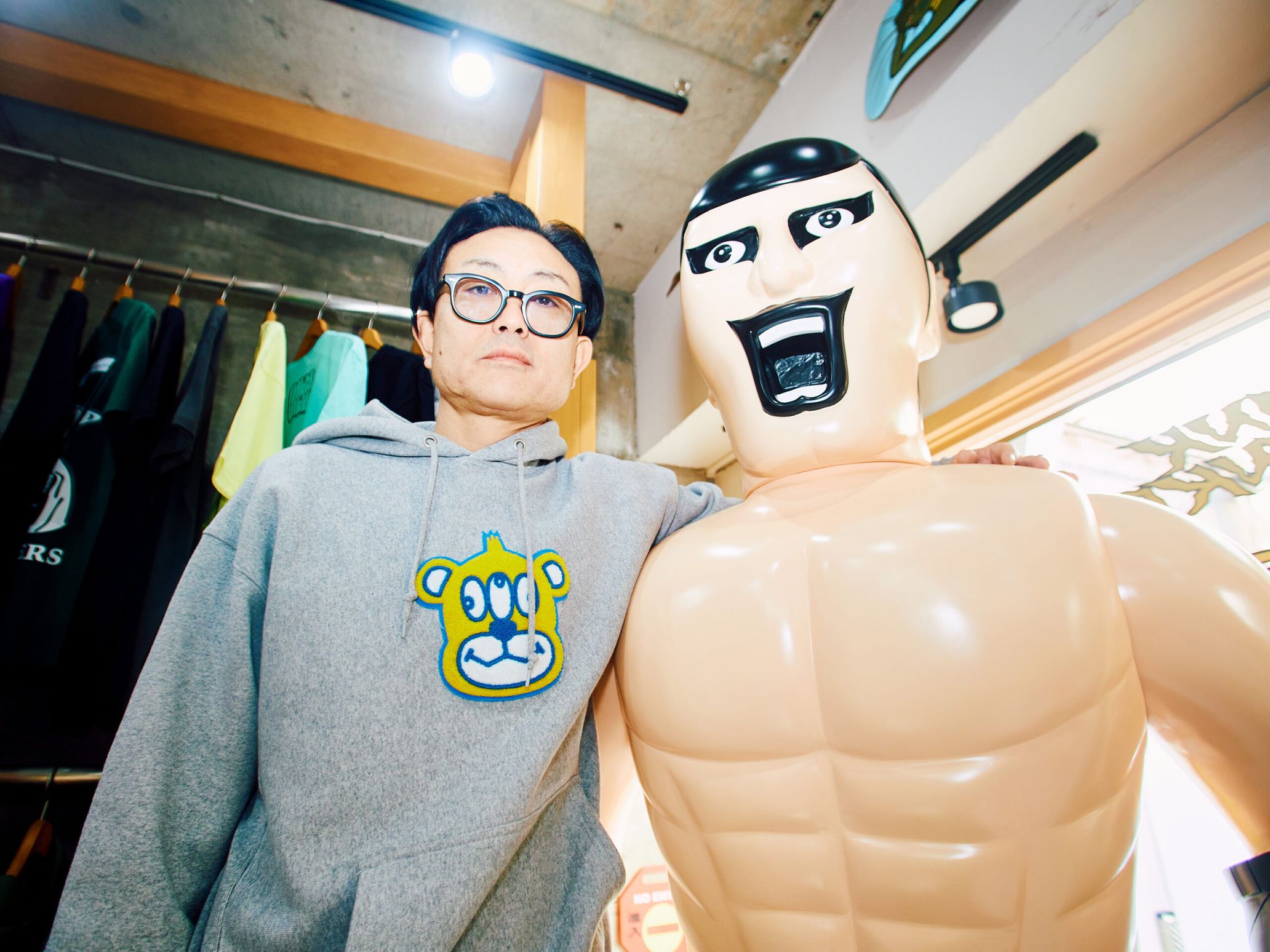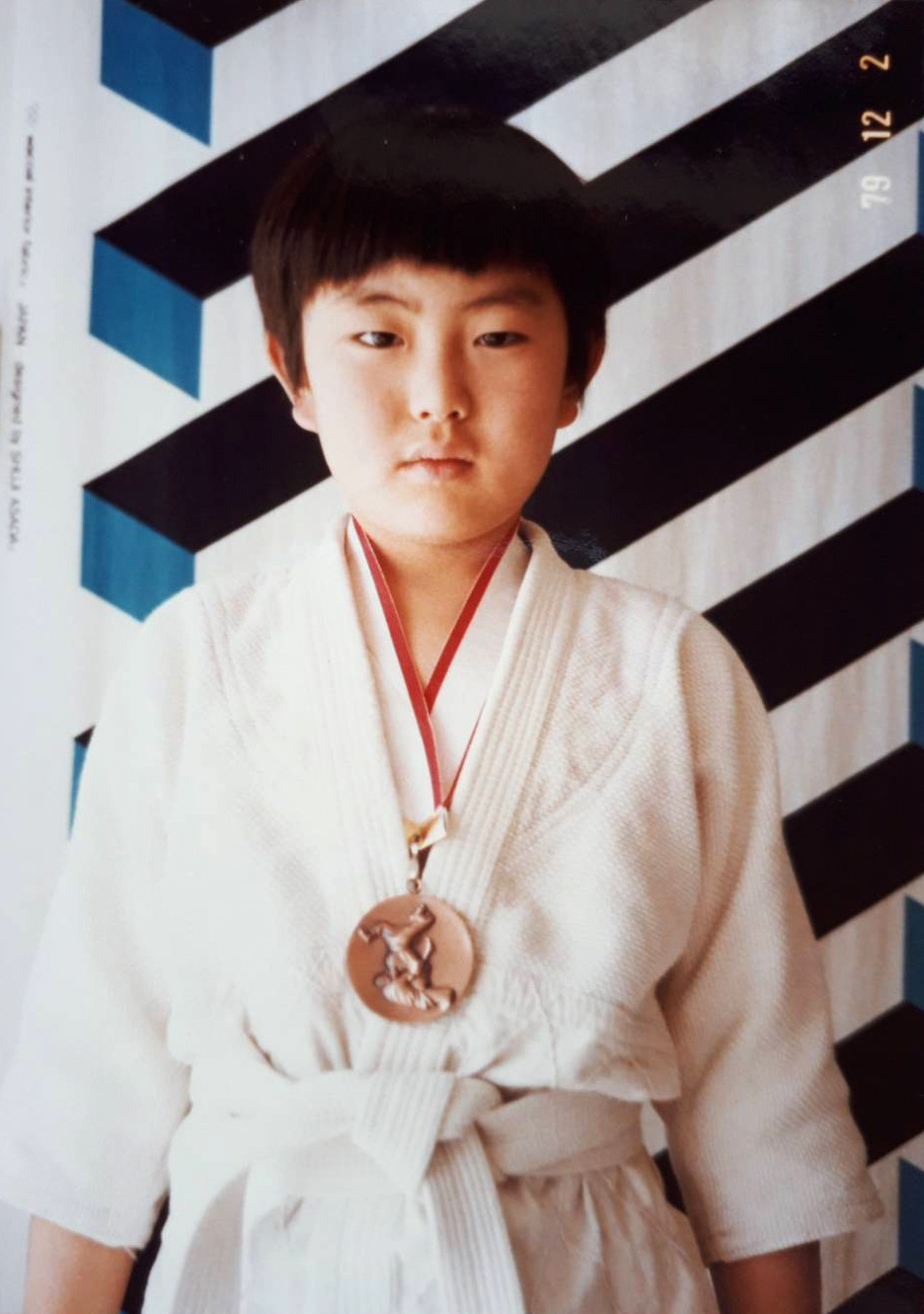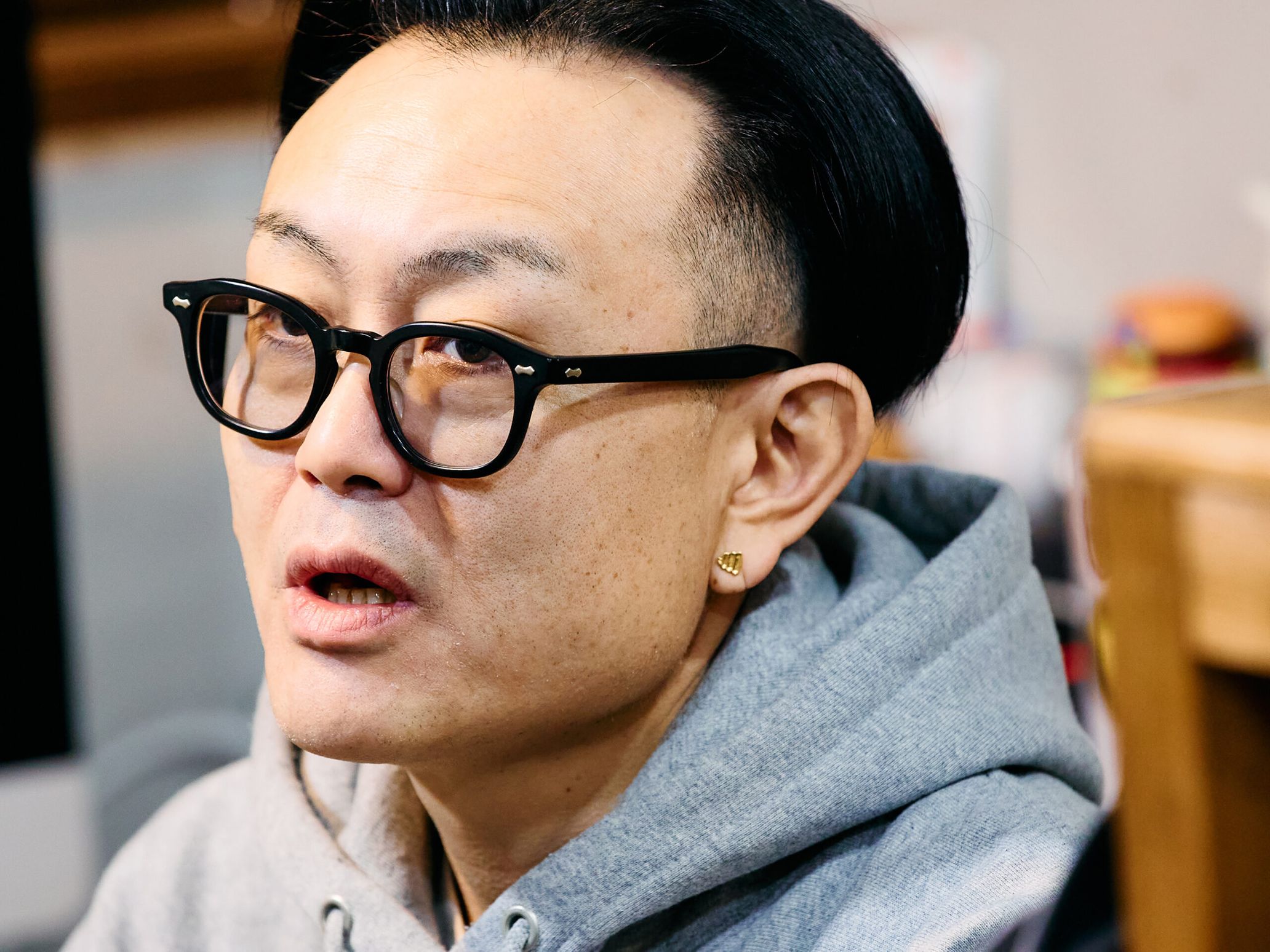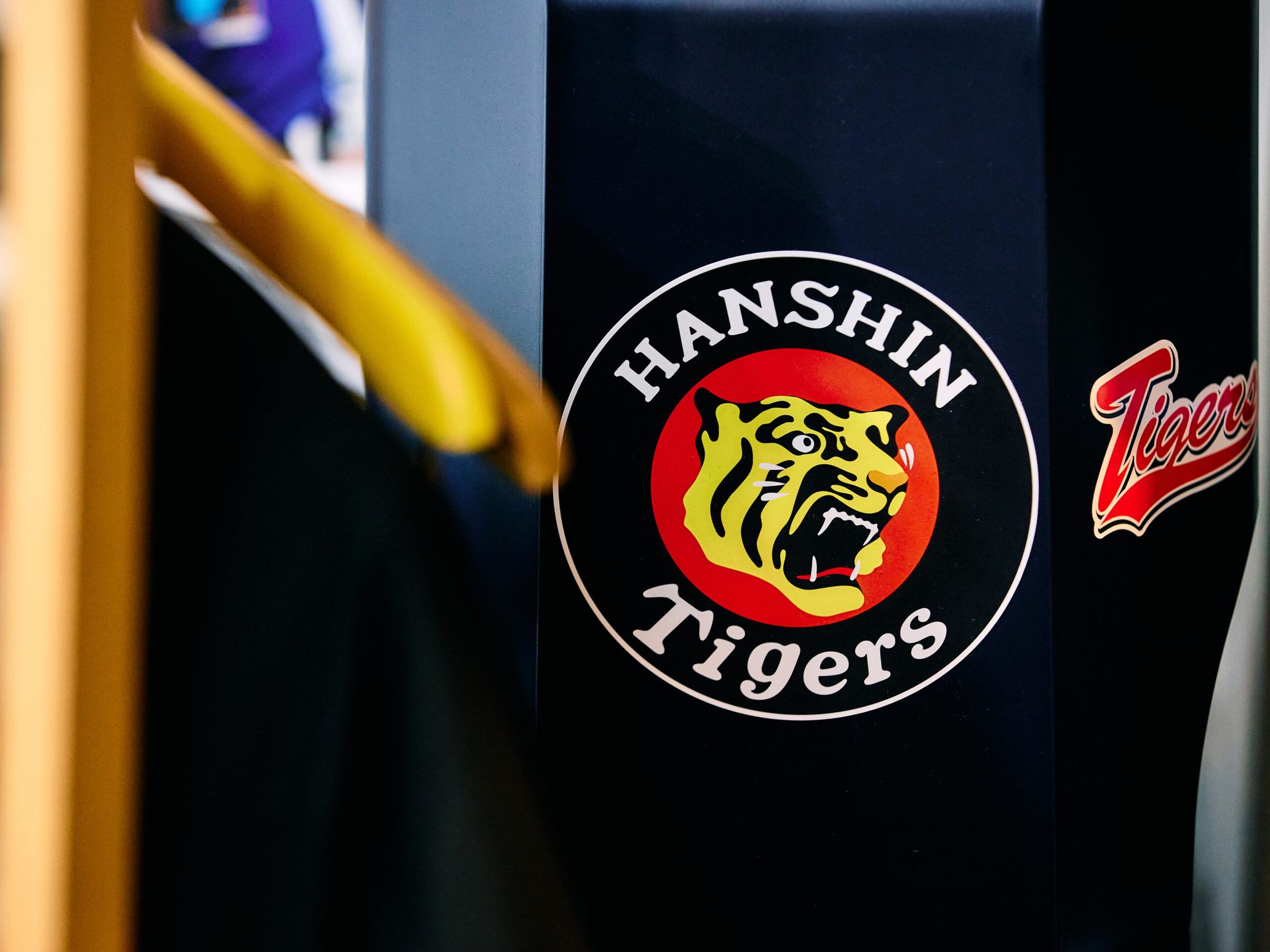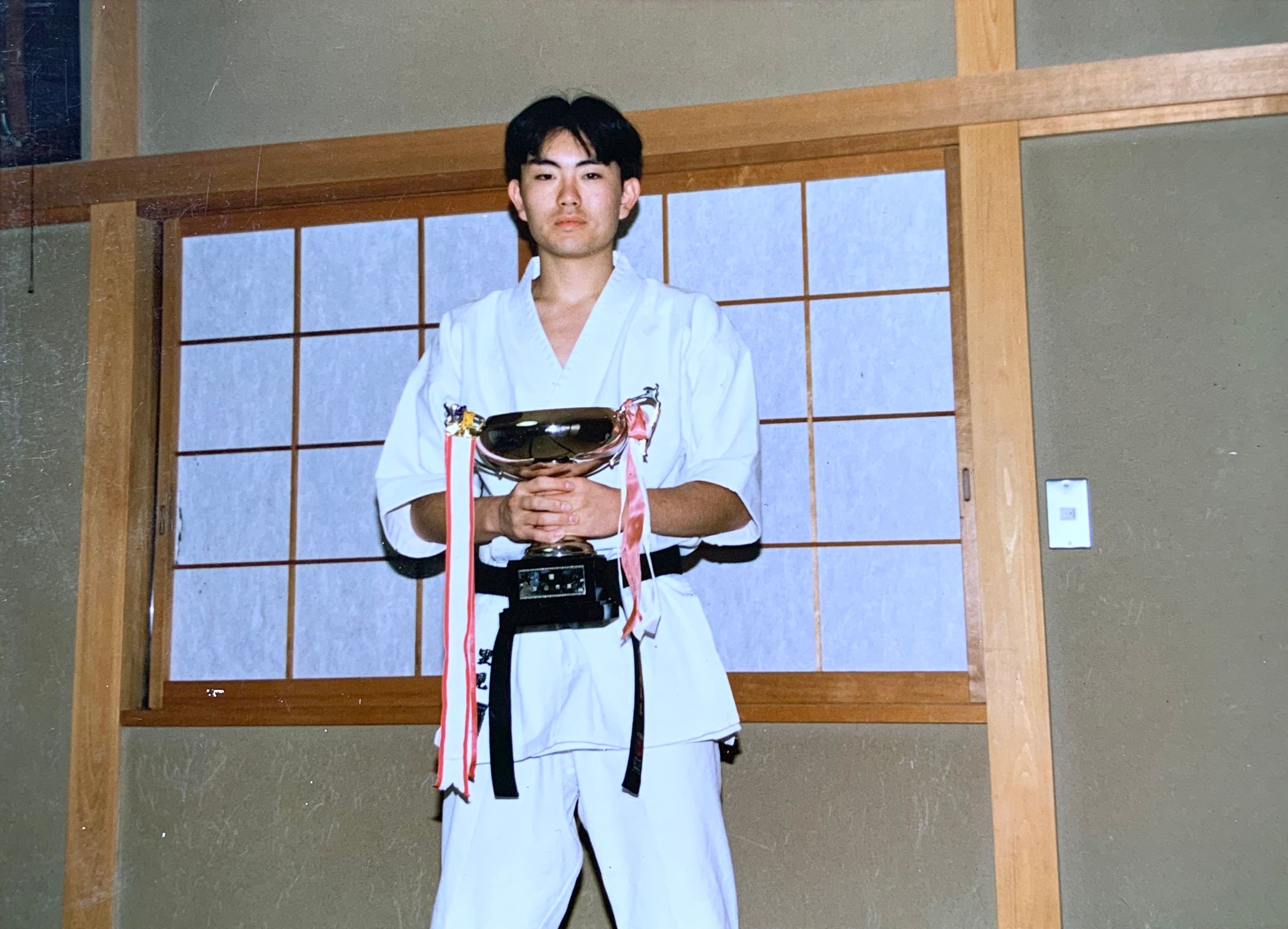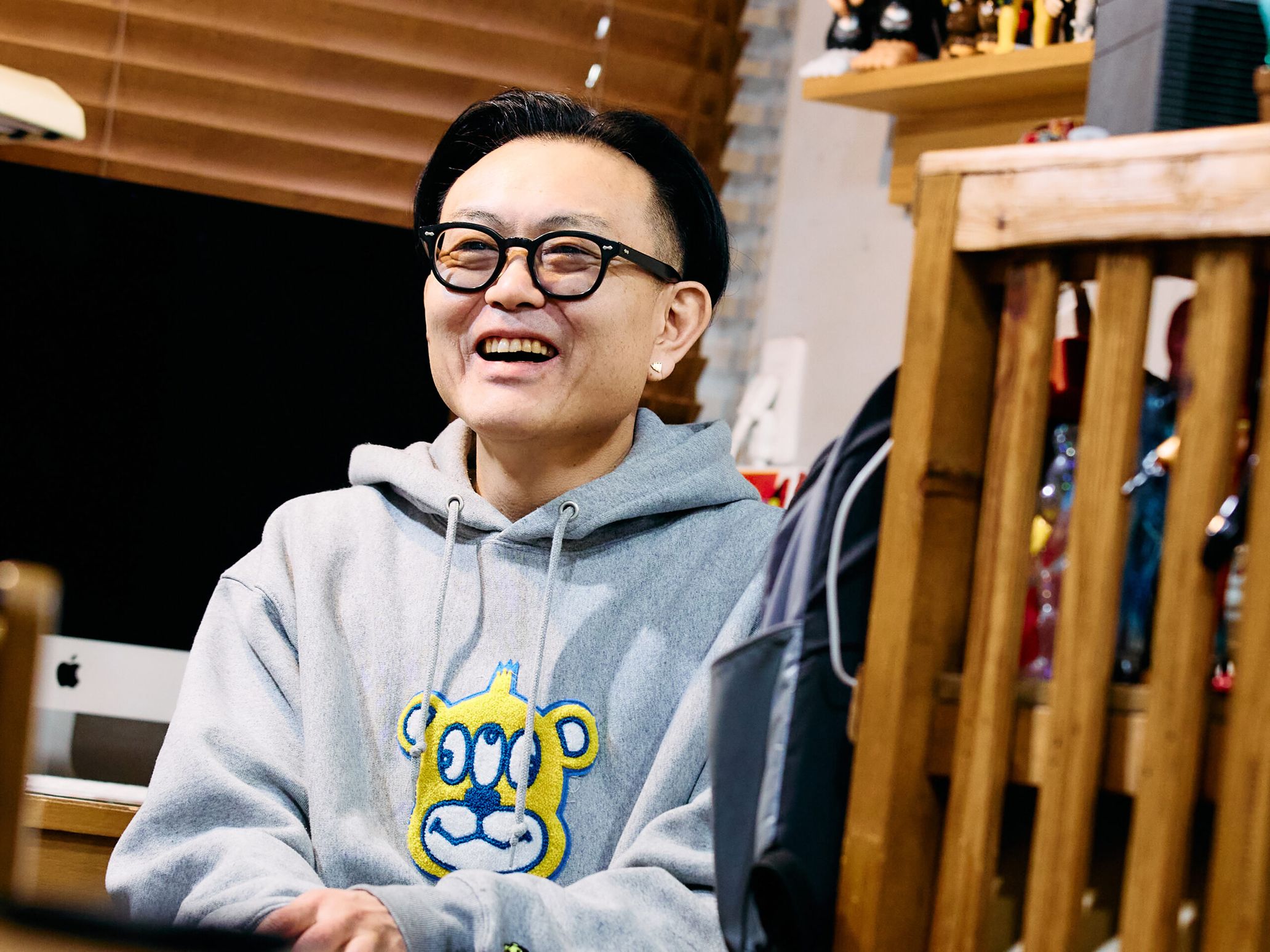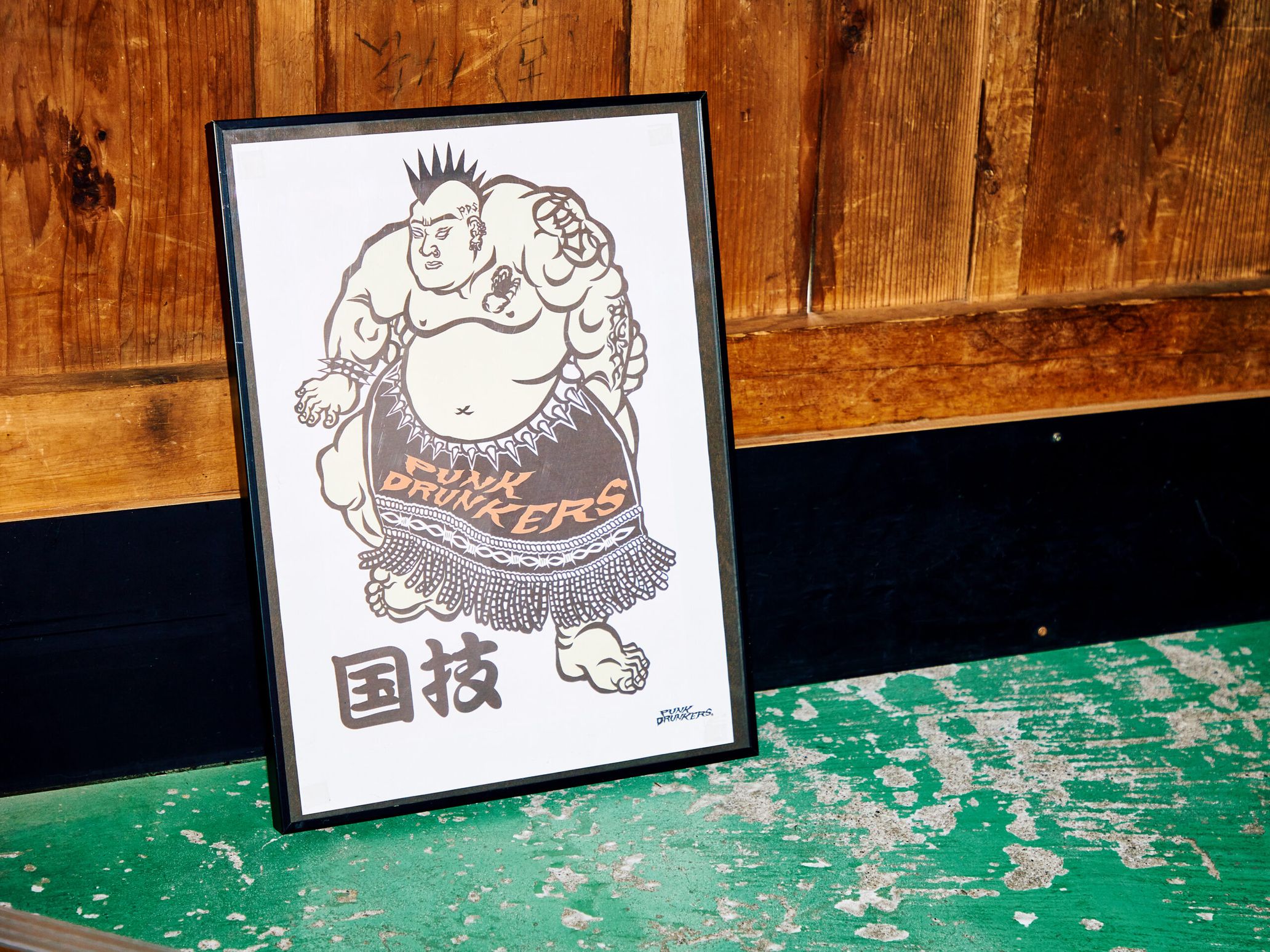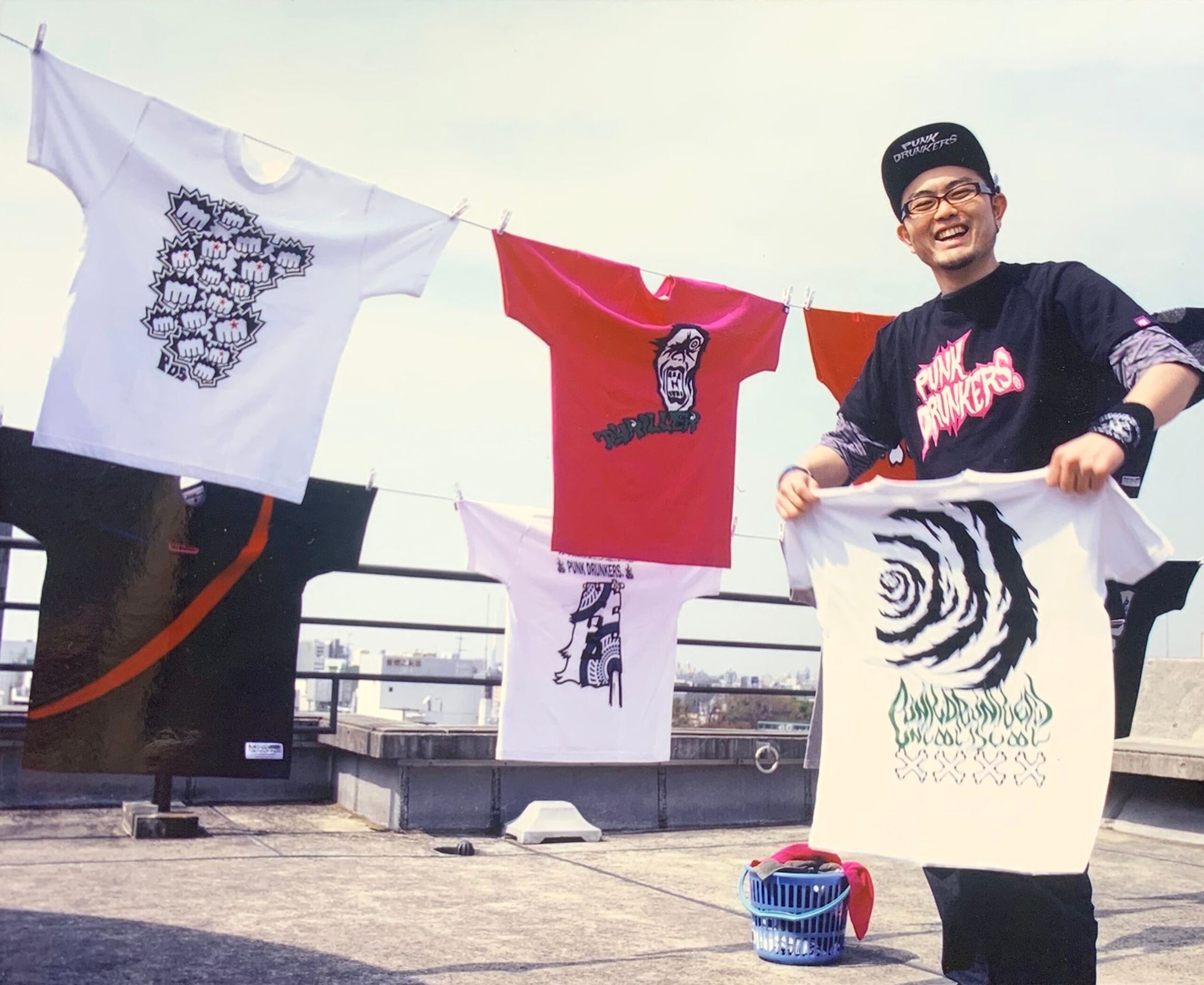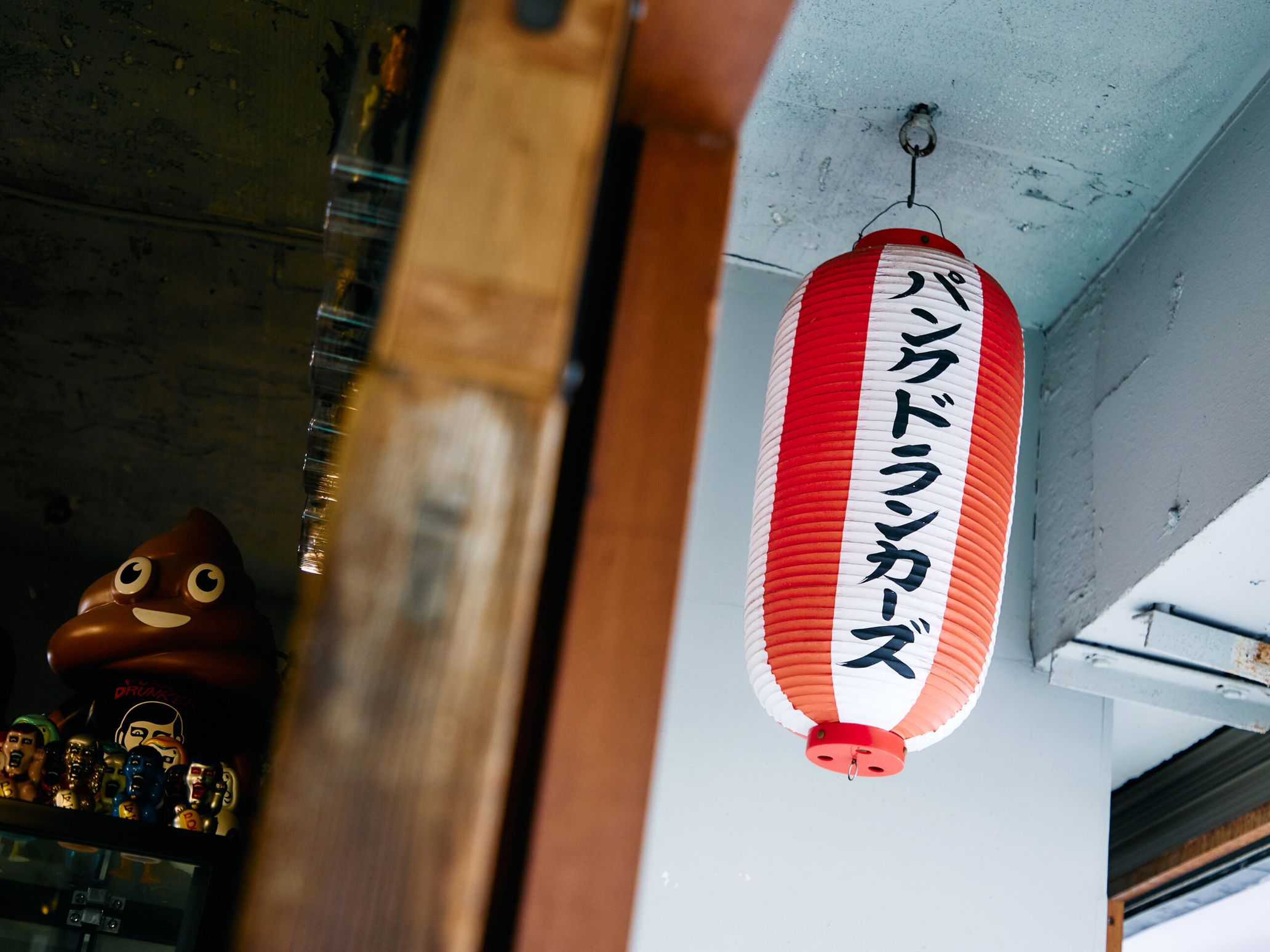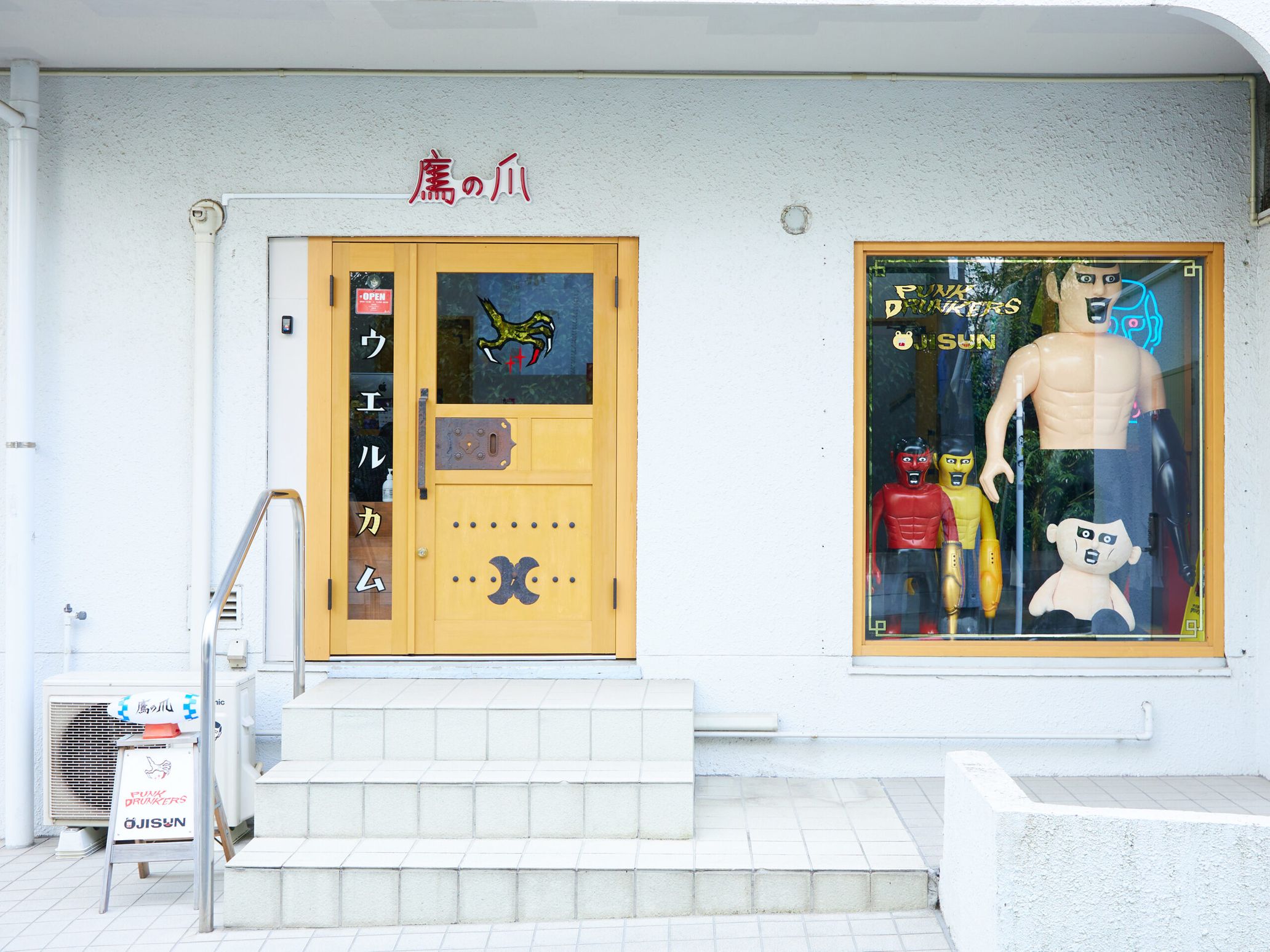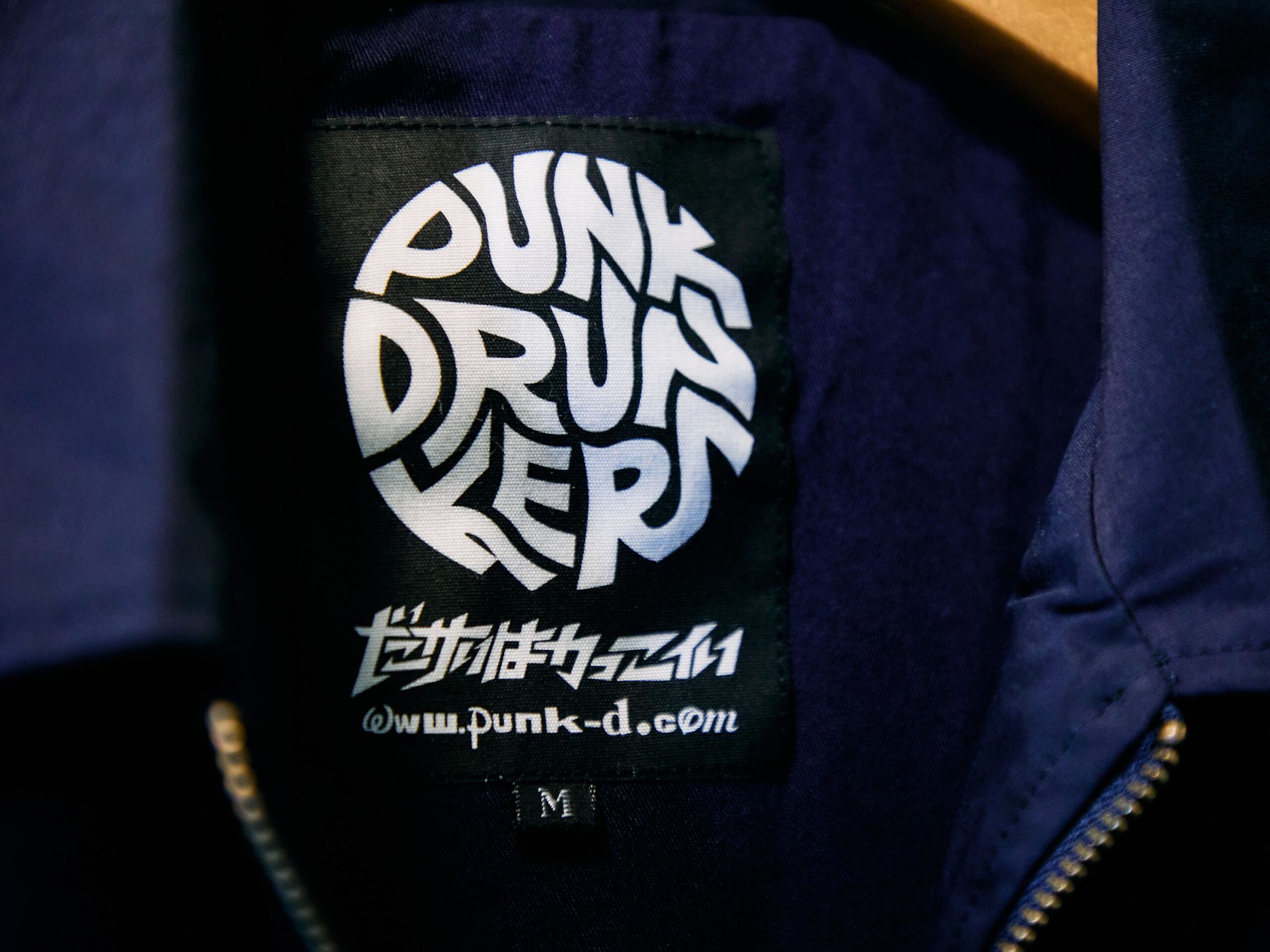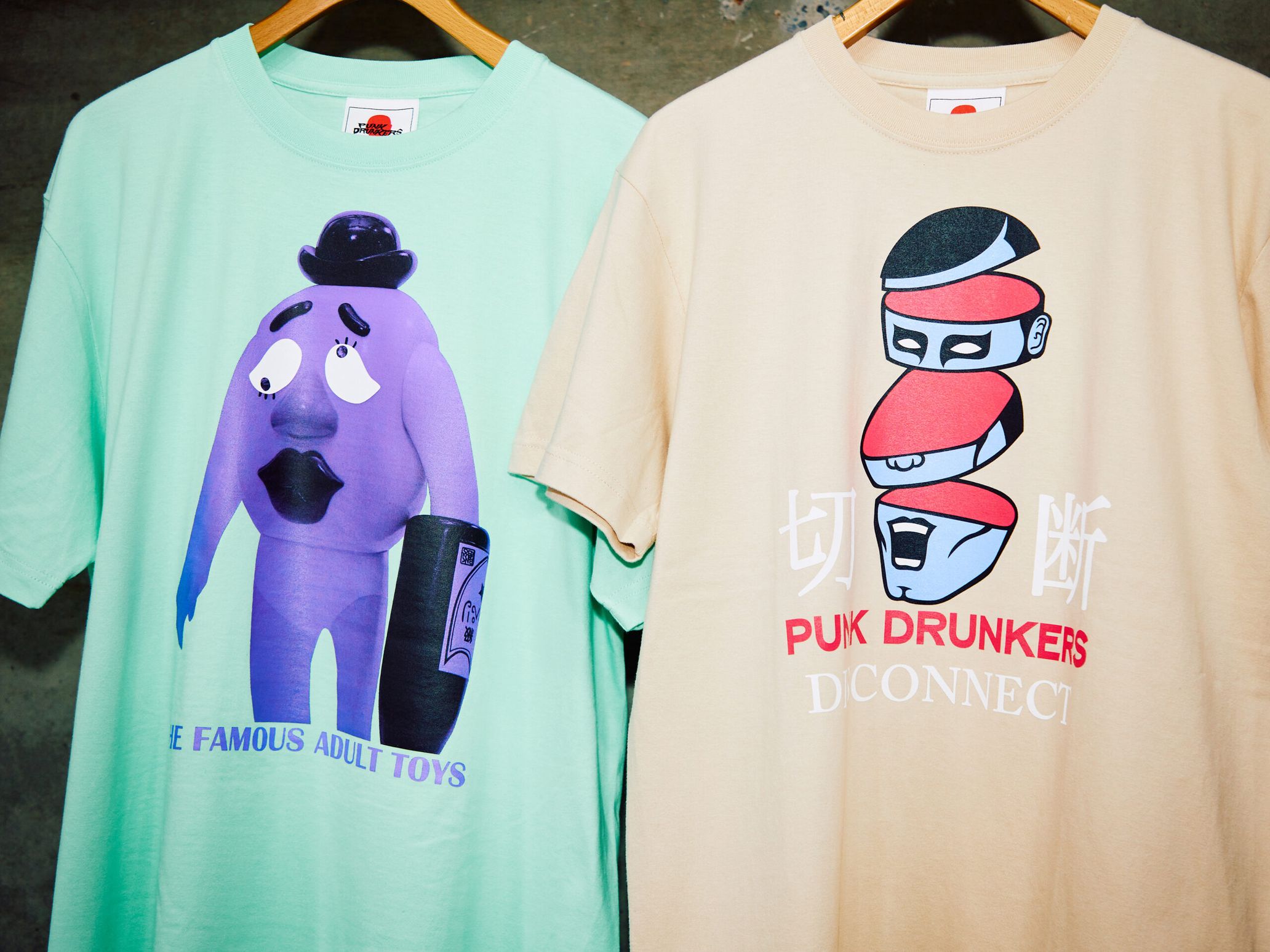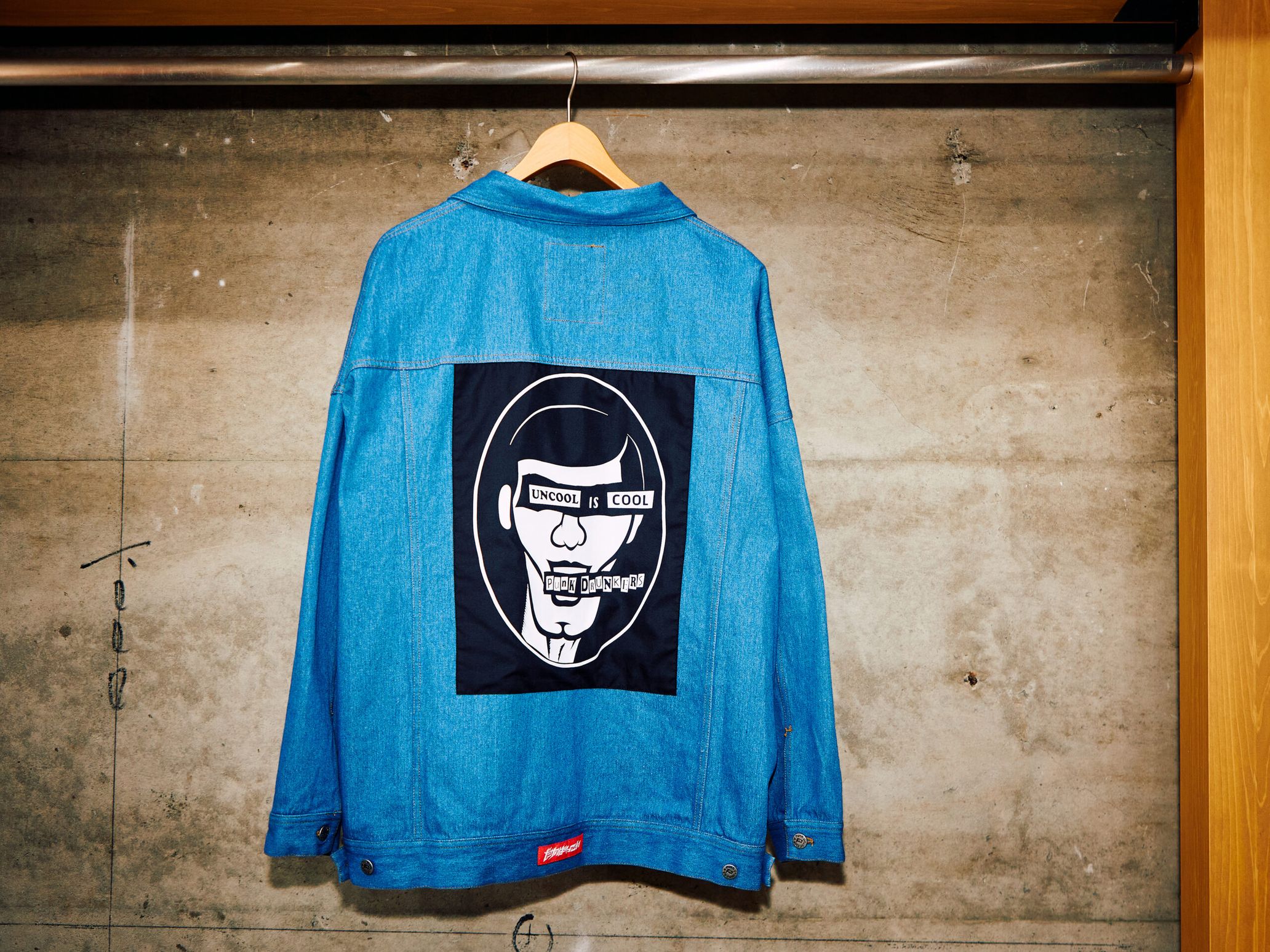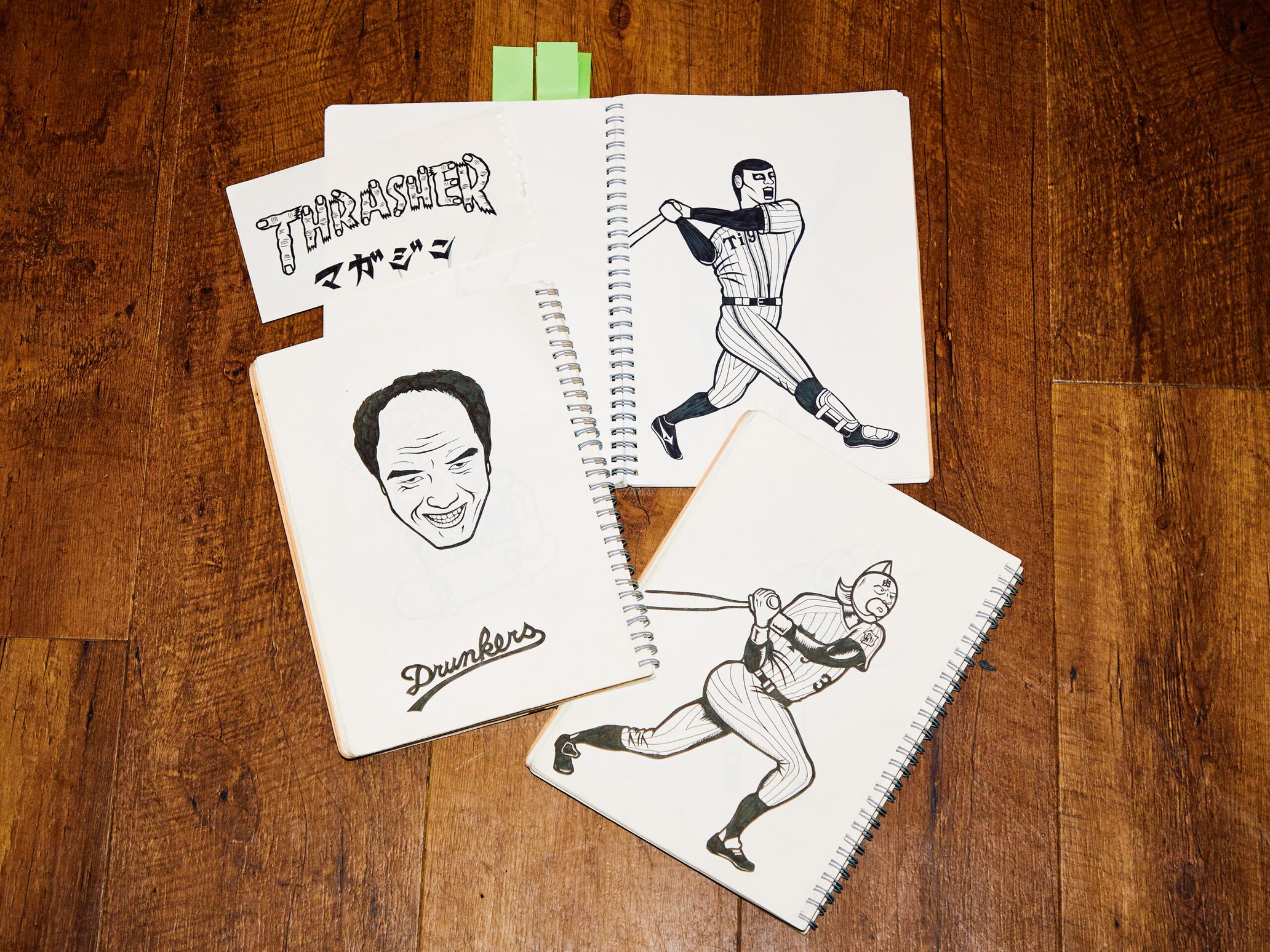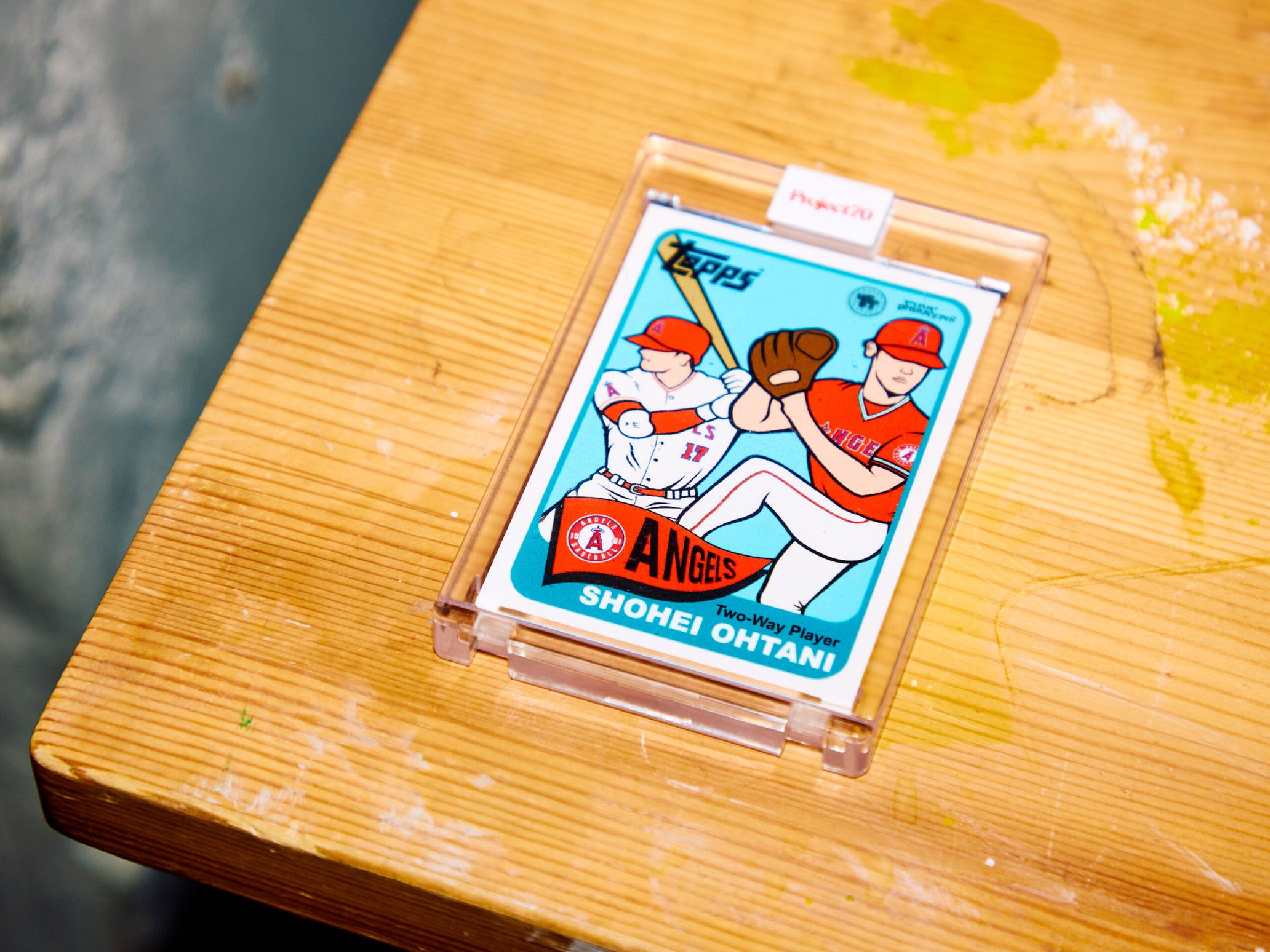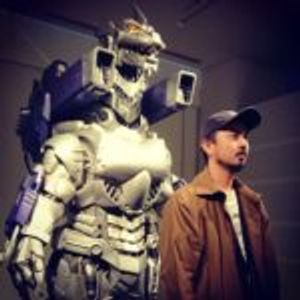Punk Drunkers is a fashion brand with the concept, “uncool is cool.” Designer and illustrator Oyakata is behind it all. He’s gained dedicated fans in and out of Japan through his tongue-in-cheek and kitsch universe.
In the second part, he talks about the future of the brand, which turns 25 next year, and his hopes while digging deep into his “seriously unserious” life so far.
Supporting Tigers when everyone else likes Giants; being a contrarian
——I forgot to ask you this before, but where does your unique pseudonym come from?
Oyakata: I’ve gone by that name since I started Punk Drunkers. My real name is Chikayoshi Satomi, and apparently, my first name was my grandfather’s pseudonym when he was teaching sculpture at the Tokyo University of the Arts. My father and older brother both have the character “Oya” (親) in their names, so I definitely wanted to use that for my pseudonym. When I thought about what could go after Oya, I thought of Oyakata. That’s how it started. Also, my father used to work at an architectural company that designed museums.
——You’re actually a thoroughbred of artists. I’d like to know more about your upbringing. What kind of child were you?
Oyakata: I was a heavier kid with a big body, so I used to do judo. My father would say, “If you’re big and have energy left, go to the dojo!” I continued doing it until 7th grade.
——What were you interested in at the time?
Oyakata: At school, I only liked P.E. and drawing class. I was a real sporty kid. I loved things that used special effects like Ultraman, Kamen Rider, and Super Sentai. And cars! I collected a lot of minicars. I liked manga like Weekly Shonen Jump. I got into Buichi Terasawa-sensei’s Cobra because of its alluring, mature, and hardboiled world. I also liked Circuit no Okami and Ringu ni Kakero.
——What kind of things did you draw then?
Oyakata: I still clearly remember drawing what I considered to be the coolest Hanshin Tigers uniform. I illustrated the uniform with a smile while daydreaming about the baseball players wearing it. Maybe this experience is what eventually led me to design clothes. Most of my classmates liked Yomiuri Giants, and I didn’t like that, so I began supporting Hanshin Tigers. And I’ve been a fan of them ever since. In other words, I’m a contrarian.
——You had a counter-cultural spirit. Did you pursue judo in middle school too?
Oyakata: There wasn’t a judo club in middle school, so I practiced at the dojo and joined the school’s soccer club. It was a small school with many staff members, for some reason. I started losing weight because you have to run to play soccer. I liked art classes at this point, but I still didn’t draw for fun.
In high school, I joined the rugby club because I became a fast runner while training for soccer. My middle school soccer coach flattered me, saying I’m meant to play rugby, so I felt like I could do it. But it was such a fierce school with tough guys from neighboring prefectures, so I gave up a year later because I couldn’t keep up with how high the level was. And then I started doing karate. My father volunteered as a karate teacher at a dojo, and he told me I should do karate if I had nothing else to do. So, I was like, “I guess that’s what I’ll do.”
——Then you graduated from high school.
Oyakata: But what was waiting for me were days of going to preparatory school as someone who didn’t get into college. I met my wife and brand partner, Kugemaro, at said preparatory school.
——Instead of job-hunting after college, you then enrolled in a vocational school to become a dental technician.
Oyakata: My parents told me I could get a job as long as I had a license, so I was like, “I’ll give it a try” because I was good with my hands and liked detailed work. I went to school for two years, got a national certificate to become a dental technician, and worked in a lab.
——You’ve lived quite a passive life.
Oyakata: Yeah, that’s true. I didn’t choose judo, rugby, or dental work by myself. I think I was just an obedient guy.
——How did someone like that start Punk Drunkers, a brand built on a rebellious spirit?
Oyakata: I was a dental technician for about a year and a half. I worked at a small family-owned lab, where the father was the CEO and the son was the executive director. But the executive director and CEO passed one after the other. I was told I could be introduced to another lab, but the job itself wasn’t fun, so I quit.
Using the skill [I had acquired], I started making silver accessories for fun. I made them out of wax at home, then rented a lab on the weekend to cast silver, and sold them in the city. That went on almost every day, and it was like I didn’t have a stable job. To be honest, I earned good money, but I didn’t think I could keep making a living off that.
——How old were you?
Oyakata: About 23 or 24. My parents were like, “You have to leave the house once you turn 30!” But I thought I couldn’t make that promise. Then one day, I joined Design Festa. My friends, who made things, and I made a group and rented a booth there. I sold silver accessories, but the reaction was so-so. And then I tried designing and selling shirts, and they sold so well.
——I’d love to see the design.
Oyakata: The front has the characters, 国技 (national sport), and the back has a sumo wrestler in a match with a mohawk covered in tattoos, alongside lyrics from Mito Komon, saying, “There are good times and bad times in life” . This is the updated 2.0 version of that. It’s an early graphic. I think I also had one titled “Byoujoushin.” The design is of babies fighting each other with fingerless gloves. The group we made was called Punk Drunkers.
Not having a big break led to this present moment
——You started the brand after feeling like you got a good response?
Oyakata: I didn’t intend on doing it seriously at that point, but I went to a store wearing a shirt we made, and the staff approached me. I then started selling shirts to the store. We took it lightly, like, “We can make pocket money!” But we started getting more clients and working as a brand properly. That was in 1998.
——You’ve had the concept, “uncool is cool,” from that time?
Oyakata: Yes. We didn’t like clothes that were too cool and perfect; we liked clothes that were a bit funny and playful. That feeling could be described as uncool is cool. We used this saying as a way to have fun with Punk Drunkers.
——In the former part of this interview, you spoke about your work overseas. What do you think people abroad think of your work?
Oyakata: I’ve never asked that before, so I’d love to know. Everyone says, “Cool!” but I don’t know what they actually think. I think I’m conveying the “fun” part, though.
——You’ve collaborated with various fields like brands, corporations, baseball teams, and comedians. What are some of the most memorable collaborations?
Oyakata: I have quite a few. Hanshin Tigers, who I love, and Ega-chan (Egashira 2:50) are some. The products I made with Takasu-sensei of Takasu Clinic and Thrasher sold well, so those were memorable. Working with Umaibo was fun. We enthusiastically collaborate with those we like, and our stance is that we accept whatever comes our way.
——How do you decide to what degree you reflect your kitsch universe in collaborations?
Oyakata: Like our products, I want to add a fun element to the collaborations. But we sometimes get told to tone it down, so in that case, I try to repress the punk-ness as much as I can. But with people that let me do whatever I want, I have fun with everything I’ve got.
——Your brand’s having its 25th anniversary next year. What’s the secret to maintaining your career?
Oyakata: I think it’s the fact that I didn’t have my big break. I did it little by little for a long time. If you have a big break, things can get out of hand, and you can’t control things. In my case, the customer demographic is diverse, from teenagers to people in their 60s, and I’m happy about that. Everyone starts a brand wanting to reach young and cool people, but that’s not sustainable. Rather than that, I want different people to recognize what I do. Regardless of age, everybody knows who Southern All Stars are, and when they release a new song, everyone listens. I want my brand to be like that. I started it at 26 years old, and now I’m 50 years old. It would be great if I could continue embodying how being uncool is cool.
Oyakata
Born in 1971 in Chiba. Has a 3rd dan in karate, left-handed. In 1998, Oyakata established his brand, Punk Drunkers, based on the concept, “Japanese + Western + Fun” and “uncool is cool.” He designs a variety of things outside of clothes. Oyakata has frequently held solo exhibitions and live painting sessions since 2003.
Instagram: @oyakatapunk
http://www.punk-d.com
Photography Yuji Sato
Translation Lena Grace Suda
Edit Shuichi Aizawa(TOKION)

